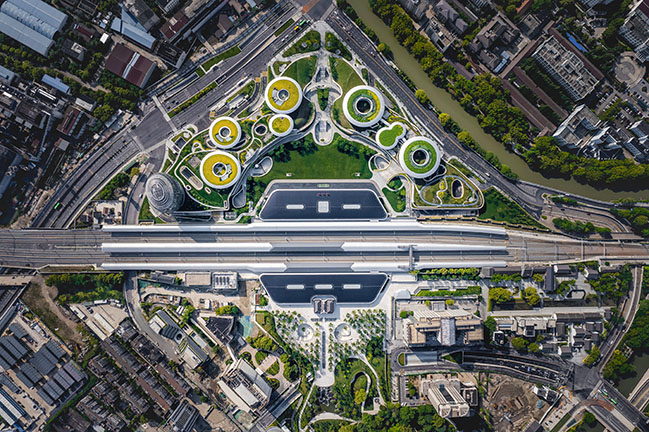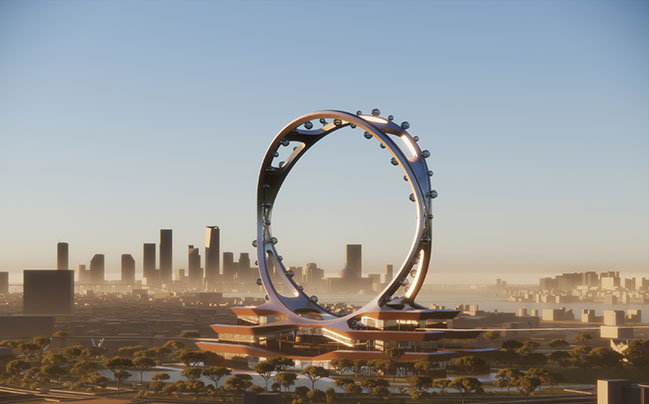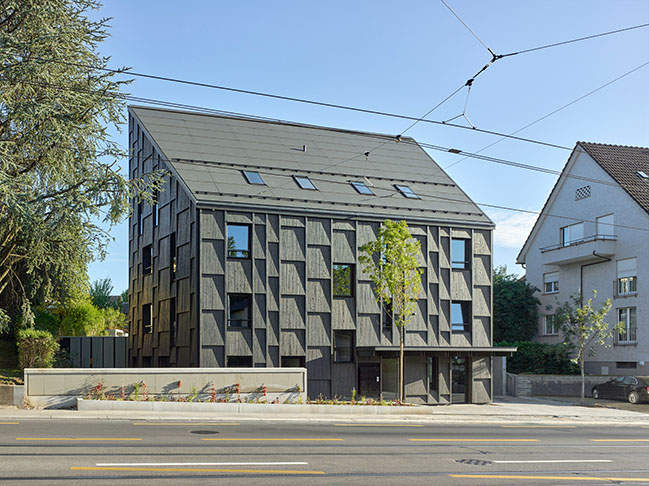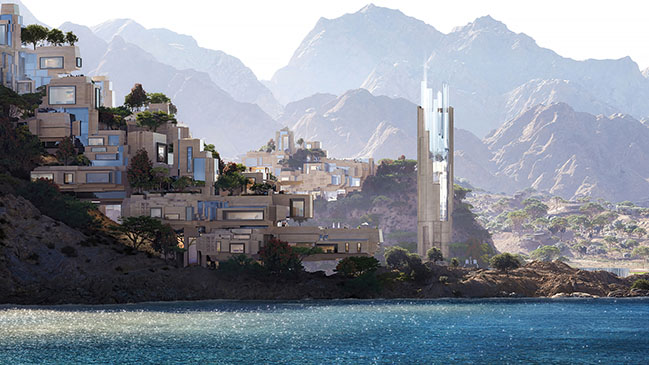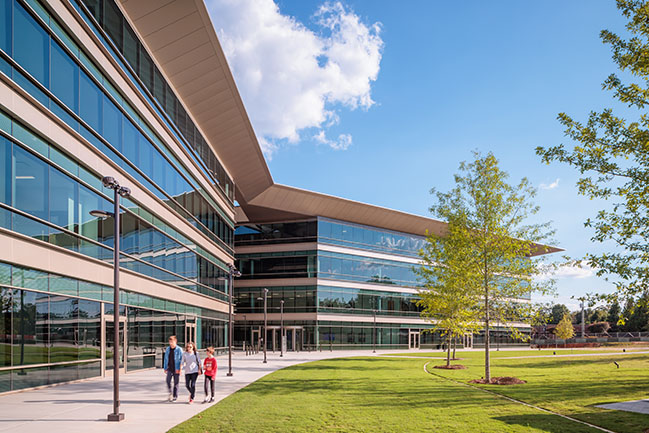02 / 08
2024
The world’s first green hydrogen refuelling infrastructure for the recreational boating industry will be initiated in 25 Italian marinas and ports with stations designed by Zaha Hadid Architects (ZHA)...
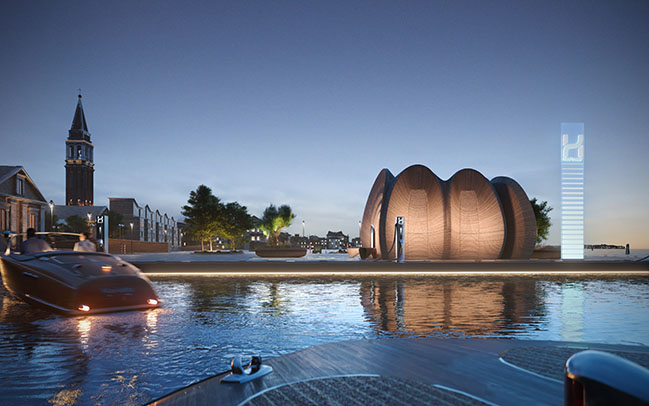
> Chengdu Science Fiction Museum by ZHA opens by hosting WorldCon
> Construction of Masaryčka by Zaha Hadid Architects completed
From the architect: A €100 million investment led by NatPower H, part of the NatPower group, the green hydrogen infrastructure will begin installation in the summer of 2024 and targets the provision of 100 refuelling stations throughout the Mediterranean over the next six years, with further expansion to the world’s most popular regions for recreational boating.
Produced with wind, solar and other renewable energy infrastructure, green hydrogen is converted into a stable, natural resource using NatPower H technologies offering unlimited possibilities to meet the ever-increasing global demand for sustainable sources of power. Emitting only water vapor and warm air, hydrogen generates electrical power in a fuel cell. The 100 refuelling stations operational by 2030 will deliver up to 3650 tons of green hydrogen annually, eliminating approximately 45,000 tons of greenhouse gas emissions from the Mediterranean’s recreational boats every year.
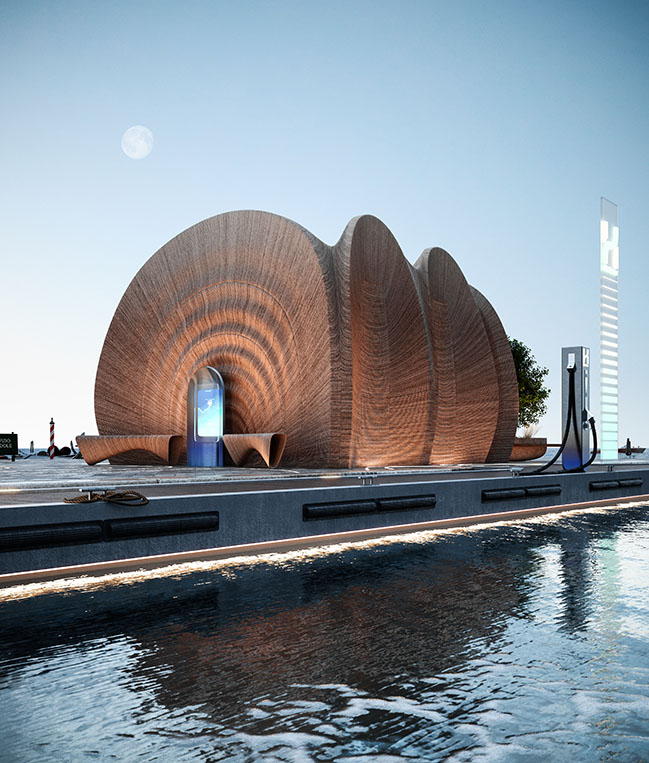
NatPower H has developed a green hydrogen fuel solution based on three key principles: safety, scalability and sustainability. The NatPower H stations will supply hydrogen using proven RINA PED certified low-pressure metal hydrides technologies for marine applications that ensure compactness, safety and resilience in compliance with industry regulations and certifications together with a meticulous focus on circularity and the protection of marine ecosystems.
The boating industry is increasingly demanding ever more sustainable vessels and the world’s shipyards are responding with solutions to reduce the ecological impact of their operations. The demarcation of protected marine areas around the world which now prohibit the use of diesel engines underscores the importance of ecologically sustainable developments in the industry. This rapid energy transition is currently held back by the lack of infrastructure for distribution and refuelling with zero-impact energy sources.

Installing the infrastructure to deliver green hydrogen, NatPower H aims to create a network of sustainable energy hubs in all major Italian marinas and establish ideal conditions to facilitate the ongoing development and use of hydrogen-powered vessels.
NatPower H is collaborating with ZHA to construct green hydrogen refuelling stations that are ecologically responsible and meet the highest safety standards. Drawing on ZHA’s research into modular systems, the design is adaptable to the many varied locations throughout the Mediterranean, enabling a customized configuration for each refuelling station based on specific local needs such as overall size, seating, bike charging facilities and the pedestrian circulation within each port and marina.
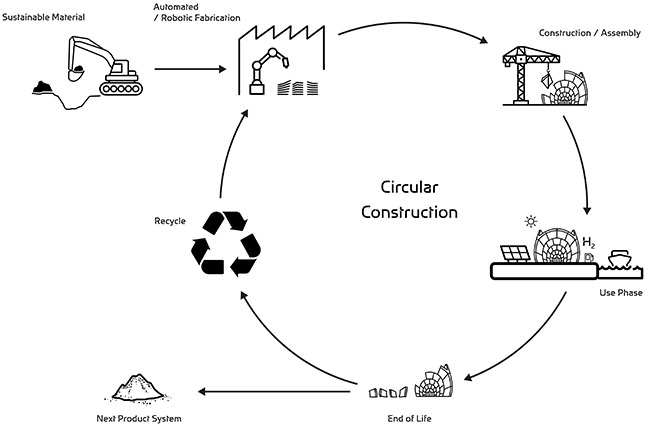
Utilising 3D robotic material placement to create the segments of each structure, the stations are fully recyclable, dry-assembled masonry, minimising construction waste while also enhancing material efficiencies. The layered composition of 3D-printed blocks echoes the processes evident in nature which create the striated structures and fluid geometries of natural formations within Mediterranean landscapes and marine ecosystems.
The refuelling stations’ design has developed from ZHA’s Computation and Design Research Group’s (ZHA CODE) collaboration with Block Research Group and Incremental3D investigating unreinforced masonry structures, 3D-printed concrete and sustainable digital concrete construction. Evident in the team’s acclaimed Striatus Bridge in Venice and the Pheonix Bridge at the Holcim Innovation Hub in Lyon, circular construction integrating computational design and 3D-printing reduces the structural materials required by up to 50% with no compromise in performance using blocks that can be easily disassembled and recycled.
“Built with low-carbon concrete, the structural strength of ZHA’s hydrogen refuelling stations is generated through geometry rather than increased use of materials. Integrating the latest innovations in construction techniques with the historic engineering developed throughout the Mediterranean by the Romans more than 2,000 years ago, the stations use advanced circular building technologies, reflecting NatPower H’s commitment to an ecologically responsible future,“ said Filippo Innocenti, Director of Zaha Hadid Architects.
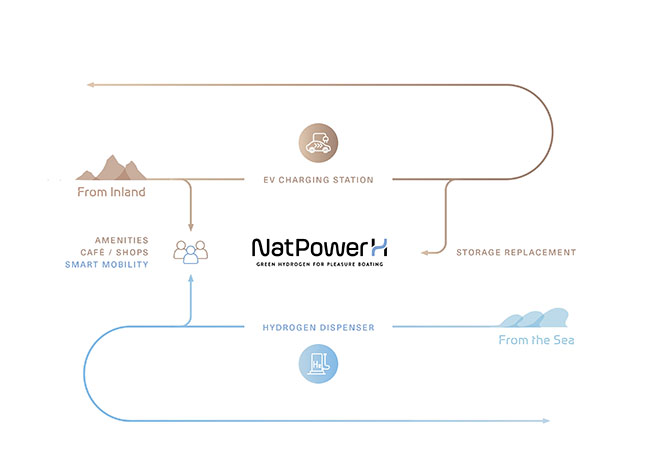
Architect: Zaha Hadid Architects (ZHA)
Client: NatPowerH
Year: 2024
Size: 50 sqm
Principal: Patrik Schumacher
Project Director: Filippo Innocenti
Project Associate: Luciano Letteriello
ZHA CODE: Tommaso Casucci, Heba Eiz, Oliver Moldow, Taeyoon Kim, Binru Wang, Jianfei Chu, Vishu Bhooshan, Henry Louth, Shajay Bhooshan
Strategic Positioning: Baglietto
American’s Cup Partnership: BlueGame
Hydrogen Technology Consultant: BluEnergy Revolution
Project Management & Engineering Advisor: Fichtner
Media & PR: Havas Hydrogen and Technology
Partner: Linde Legal
Consultant Partner: Studio Maresca
Safety Advisor: Sige
Communication & Images: Tecma Solutions
ZHA Videography: Henry Virgin
NatPowerH Hydrogen Refuelling Stations by ZHA
02 / 08 / 2024 World's first green hydrogen refuelling network for recreational boating to be built by ZHA for NatPower H...
You might also like:
Recommended post: Central Crossing by Foster + Partners
